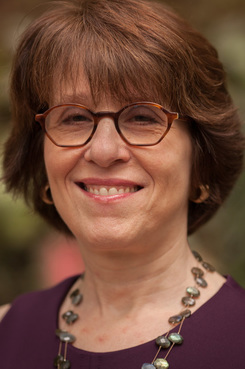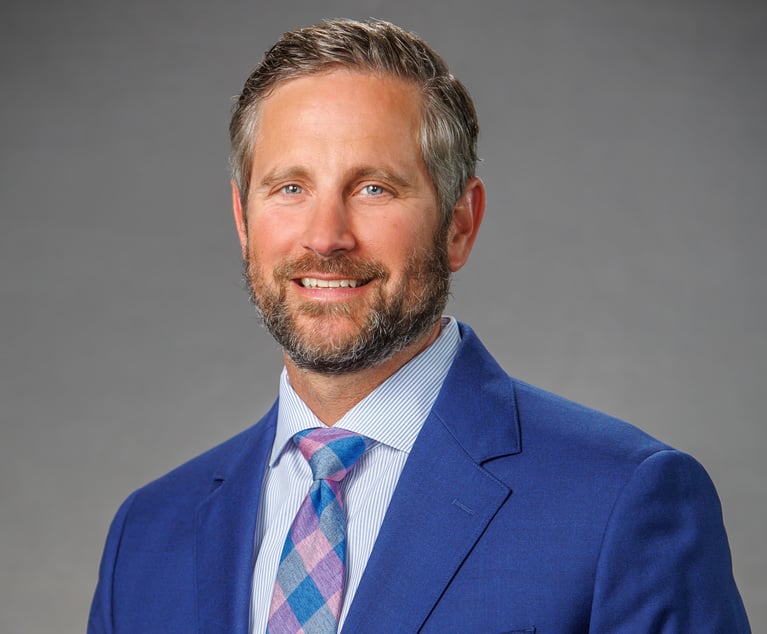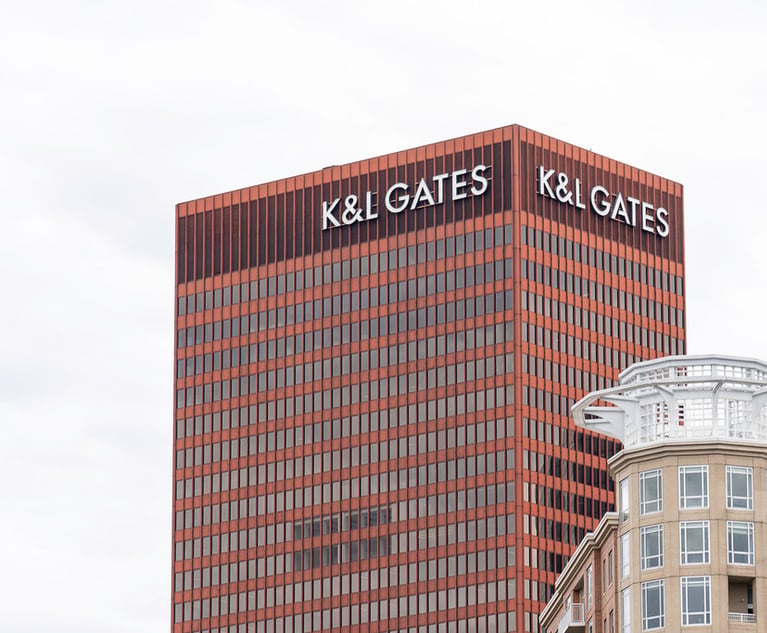Being a Lawyer Can Be Lonely—But It Doesn't Have to Be
My philosophy is that networking is like having a social life for my coaching business and it is part of my job to have places to go and people to see. If you are a professional service provider, the same is true for you.
February 20, 2019 at 01:30 PM
7 minute read
 Dena Lefkowitz
Dena Lefkowitz
When I was a young lawyer, I mentioned a hobby of mine in front of my boss, something I did in my free time. My boss, the managing partner of the firm, narrowed his eyes and said, “free time? You don't have free time. Your time is my time.” I heard those words over 20 years ago and they still reverberate in my ears as freshly as if just spoken. It was true. He had the power, as did all the partners, to transform my weekend by dropping something on my desk at 5 o'clock on Friday, due on Monday. Usually, it was something that sat on their desks for weeks and now a response was due, creating an avoidable emergency by waiting so long.
This behavior is pervasive in the legal field. One of my clients has a boss they call “5 o'clock Bob” for his propensity to drop projects at that hour, particularly on Fridays. There are many reasons for this behavior including honest mistakes, poor planning, last-minute contingencies that cause work assignments to be reshuffled, and some people are just plain mean, using their authority to dominate others. There may be other reasons—these are what I encountered again and again when I practiced and now hear about from lawyers I coach.
What effects does this power have on the lives of associate attorneys? They are numerous and consequential. Here, I want to focus on only one—it promotes isolation and inhibits lawyers from participating in a robust social life and joyful activities like live music, theater, and sporting events. I recall telling a friend that I couldn't attend a dinner party because I had to work all weekend. “Nobody works on Saturday night!” he said incredulously. Lawyers do.
A recent survey in the Harvard Business Review by Gabriella Rosen Kellerman, psychiatrist and chief innovation officer for a workplace consulting firm found that law is the loneliest profession. More than 60 percent of lawyers ranked above the standard on the loneliness scale. Loneliness is considered a public health crisis because of its association with greater risk of heart disease, depression and anxiety. To see if you are at risk, take the UCLA Loneliness Scale: (https://psychcentral.com/quizzes/loneliness-quiz/).
When you do the math of a lawyer's life, there is barely any time for the antidote to loneliness—meaningful social interaction with a caring network of friends and family. If an attorney bills 1,800 hours a year, and that's an average requirement, she must bill 37 hours a week or roughly 7.3 hours per day (assuming three weeks of vacation, which many lawyers don't use). Attorneys can spend at least 10 hours at work in order to get 7.3 billable hours because of lunch breaks, bathroom breaks and activities that are not billable (e.g., department meetings, reading legal updates and administrative work).
Further eroding the ability to bill, lawyers spend time commuting, marketing, attending continuing legal education courses and industry events, and have sick days. This all adds up to long work days and spending evenings and weekends catching up, which means less time with friends and loved ones.
When time is short, efficiency demands limiting interruptions, perhaps working with your door closed and the phone on forward. That leaves you all alone with your work.
Is it any wonder lawyers are the loneliest professionals?
One of my clients recently retired, and he continues to get up and go to the gym at the same early hour every morning. “It keeps the bogeyman away,” he says. Loneliness may be the most dangerous bogeyman there is because its effects are so pervasive.
If any of this is resonating in you, ask yourself if you're satisfied with your current level of social interaction, whether you're maintaining friendships over time and whether you feel socially engaged on a regular basis. Are the habits you're developing now likely to lead to a robust social life or a meager one? And how can you have more meaningful interactions when you're already pressed on making your billables?
One strategy is to make a habit and hobby of networking.
My philosophy is that networking is like having a social life for my coaching business and it is part of my job to have places to go and people to see. If you are a professional service provider, the same is true for you. Business development is a great way to mitigate isolation and have more freedom.
Here is my life hack: make networking fun so you will have things to look forward to in your daily work life. This has the dual effect of growing your book of business while making good friends who will be there for you throughout your career.
Here are some principles that have worked for me and many of my clients:
Rule # 1—Networking is an opportunity to have a busy calendar if you attend events at organizations you belong to and regularly meet people for lunch and coffee. Staying in touch is an oft-neglected aspect of networking. There is ample business justification for it and can be fun when you have a good attitude. Make networking part of every week.
Rule # 2—Don't network with people unless you genuinely like them. You're looking for people with whom you can make an authentic connection and build relationships and trust by investing time and energy. When I see a name on my calendar, it's always a “yay!” unless you're my dentist (who I like immensely but cannot say with any authenticity that seeing his name sparks joy).
Rule # 3—Join groups of like-minded people. The organization should be aligned with your values and have a mission that you appreciate.
Rule # 4—Dig in. When you join an organization, don't be a wallflower. Attend events, get to know the people who run it, help out whenever possible, join a committee, take a board position, look for opportunities to speak and be consistent. When you consistently attend membership events, it becomes much more enjoyable as you connect familiar faces with names, deepening your knowledge with each encounter. Small talk does little to alleviate loneliness, but building solid connections and being authentically interested makes networking events a pleasure.
Rule # 5—In addition to regular meetings of the groups you belong to, find events that sound interesting, so there will be multiple reasons to attend.
Rule # 6—When you see an event that looks good, pay in advance so you're committed. If it's free, register and put it on your calendar.
Rule # 7—Nurture others. Supporting people, volunteering, and doing a favor all help build connections.
Happy networking (literally)!
Dena Lefkowitz is a certified professional coach who helps clients improve networking and marketing skills, make successful career transitions, and develop the skills necessary to lead. Having practiced law for 25 years in private practice and in-house, she understands the challenges new and seasoned lawyers face. Lefkowitz has successfully coached a best-selling author, lawyers, accountants and chief executives. Firms have also hired Lefkowitz to work directly with lawyers at all phases of their careers to improve performance and increase their contributions to the firm. For more information, visit www.achievementbydesign.com.
This content has been archived. It is available through our partners, LexisNexis® and Bloomberg Law.
To view this content, please continue to their sites.
Not a Lexis Subscriber?
Subscribe Now
Not a Bloomberg Law Subscriber?
Subscribe Now
NOT FOR REPRINT
© 2025 ALM Global, LLC, All Rights Reserved. Request academic re-use from www.copyright.com. All other uses, submit a request to [email protected]. For more information visit Asset & Logo Licensing.
You Might Like
View All

Products Liability: The Absence of Other Similar Claims—a Defense or a Misleading Effort to Sway a Jury?


K&L Gates Sheds Space, but Will Stay in Flagship Pittsburgh Office After Lease Renewal
Trending Stories
- 1State Budget Proposal Includes More Money for Courts—for Now
- 2$5 Million Settlement Reached With Stone Academy
- 3$15K Family Vacation Turned 'Colossal Nightmare': Lawsuit Filed Against Vail Ski Resorts
- 4Prepare Your Entries! The California Legal Awards Have a New, February Deadline
- 5DOJ Files Antitrust Suit to Block Amex GBT's Acquisition of Competitor
Who Got The Work
Michael G. Bongiorno, Andrew Scott Dulberg and Elizabeth E. Driscoll from Wilmer Cutler Pickering Hale and Dorr have stepped in to represent Symbotic Inc., an A.I.-enabled technology platform that focuses on increasing supply chain efficiency, and other defendants in a pending shareholder derivative lawsuit. The case, filed Oct. 2 in Massachusetts District Court by the Brown Law Firm on behalf of Stephen Austen, accuses certain officers and directors of misleading investors in regard to Symbotic's potential for margin growth by failing to disclose that the company was not equipped to timely deploy its systems or manage expenses through project delays. The case, assigned to U.S. District Judge Nathaniel M. Gorton, is 1:24-cv-12522, Austen v. Cohen et al.
Who Got The Work
Edmund Polubinski and Marie Killmond of Davis Polk & Wardwell have entered appearances for data platform software development company MongoDB and other defendants in a pending shareholder derivative lawsuit. The action, filed Oct. 7 in New York Southern District Court by the Brown Law Firm, accuses the company's directors and/or officers of falsely expressing confidence in the company’s restructuring of its sales incentive plan and downplaying the severity of decreases in its upfront commitments. The case is 1:24-cv-07594, Roy v. Ittycheria et al.
Who Got The Work
Amy O. Bruchs and Kurt F. Ellison of Michael Best & Friedrich have entered appearances for Epic Systems Corp. in a pending employment discrimination lawsuit. The suit was filed Sept. 7 in Wisconsin Western District Court by Levine Eisberner LLC and Siri & Glimstad on behalf of a project manager who claims that he was wrongfully terminated after applying for a religious exemption to the defendant's COVID-19 vaccine mandate. The case, assigned to U.S. Magistrate Judge Anita Marie Boor, is 3:24-cv-00630, Secker, Nathan v. Epic Systems Corporation.
Who Got The Work
David X. Sullivan, Thomas J. Finn and Gregory A. Hall from McCarter & English have entered appearances for Sunrun Installation Services in a pending civil rights lawsuit. The complaint was filed Sept. 4 in Connecticut District Court by attorney Robert M. Berke on behalf of former employee George Edward Steins, who was arrested and charged with employing an unregistered home improvement salesperson. The complaint alleges that had Sunrun informed the Connecticut Department of Consumer Protection that the plaintiff's employment had ended in 2017 and that he no longer held Sunrun's home improvement contractor license, he would not have been hit with charges, which were dismissed in May 2024. The case, assigned to U.S. District Judge Jeffrey A. Meyer, is 3:24-cv-01423, Steins v. Sunrun, Inc. et al.
Who Got The Work
Greenberg Traurig shareholder Joshua L. Raskin has entered an appearance for boohoo.com UK Ltd. in a pending patent infringement lawsuit. The suit, filed Sept. 3 in Texas Eastern District Court by Rozier Hardt McDonough on behalf of Alto Dynamics, asserts five patents related to an online shopping platform. The case, assigned to U.S. District Judge Rodney Gilstrap, is 2:24-cv-00719, Alto Dynamics, LLC v. boohoo.com UK Limited.
Featured Firms
Law Offices of Gary Martin Hays & Associates, P.C.
(470) 294-1674
Law Offices of Mark E. Salomone
(857) 444-6468
Smith & Hassler
(713) 739-1250





